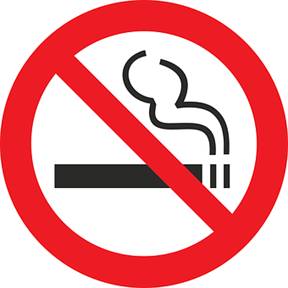The Risks of Electronic Cigarettes: What You Need to Know
In recent years, electronic cigarettes have gained popularity as an alternative to traditional tobacco smoking. However, a new study sheds light on the potential risks associated with their usage, particularly concerning respiratory health.
The study, conducted among Chinese adults, aimed to investigate the impact of e-cigarette usage on the onset of respiratory symptoms and chronic obstructive pulmonary disease (COPD). Over a five-year period, researchers followed 10,326 participants aged 20 to 55 who were free of respiratory diseases at the beginning of the study.
The results revealed concerning associations between e-cigarette usage and respiratory health, including:
-
Increased Risk of Respiratory Symptoms: Individuals who used e-cigarettes, whether exclusively or in combination with traditional cigarettes, showed a higher risk of developing respiratory symptoms such as coughing, wheezing, and shortness of breath.
-
Higher Incidence of COPD: E-cigarette users also exhibited an elevated risk of developing COPD compared to non-users, with the risk being particularly pronounced in dual users of ECs and combustible cigarettes.
Interestingly, the study uncovered a non-linear relationship between daily e-cigarette usage and the risk of respiratory symptoms and COPD. Even minimal e-cigarette usage was associated with increased risk, and the risk further escalated with higher consumption levels.
Implications for Consumers
These findings have important implications for consumers, especially those considering e-cigarettes as a smoking cessation aid. While they were initially touted as a safer alternative to traditional cigarettes, emerging evidence suggests otherwise. The study highlights the potential health risks associated with e-cigarette usage, particularly in the context of respiratory health.
Considering these findings, researchers urge policymakers and healthcare professionals to approach ECs with caution:
-
Regulation: There is a need for stricter regulation of e-cigarettes, especially concerning marketing, accessibility, and flavorings that may appeal to youth.
-
Smoking Cessation: Smokers looking to quit should explore alternative cessation methods that have been proven effective, such as counseling, nicotine replacement therapy, and prescription medications.
-
Public Awareness: Public health campaigns should raise awareness about the potential risks of e-cigarette usage, particularly among young adults and non-smokers.
While further research is needed to fully understand the long-term health effects of e-cigarettes, the current study underscores the importance of exercising caution when using these products. Consumers should prioritize their respiratory health and seek guidance from healthcare professionals when considering e-cigarettes as a smoking cessation tool.
Read the full study in Scientific Reports.
No Better Time Than Now to Quit Smoking
It’s never not a good time to quit smoking. But considering smokers are among those at a greater risk of contracting a severe illness from a COVID-19 infection, there may be no better time than now to kick the dangerous habit.
According to a research letter published in the European Respiratory Journal, the risk for COVID-19 turning into pneumonia in smokers and those suffering from COPD – chronic obstructive pulmonary disease – can be partly explained by increased levels of an enzyme that allows the virus to infect their lungs.
A study conducted by Canadian researchers determined that smokers had higher levels of angiotensin-converting enzyme 2 (ACE2) in their lower respiratory tract than those who had quit smoking or had never smoked.
"This may in part explain the increased risk of viral respiratory tract infection in active smokers and virus-related exacerbations in those with COPD," the study read
The researchers recommend increased coronavirus vigilance in smokers and those with COPD to prevent or rapidly diagnose the infection.
“This suggests that there has never been a better time to quit smoking to protect yourself from COVID-19," said Dr. Janice Leung, who led the research at the University of British Columbia and St. Paul’s Hospital in Vancouver.
Click here for more on the story and here to read the research letter.
Stopping Smoking Allows Healthy Lung Cells to Proliferate
 New research is adding to the strong suggestion that the benefits of quitting smoking are overwhelmingly positive, including preventing further damage to the lungs—increasing the proportion of healthy cells to damaged cells that could reduce the risk of lung cancer.
New research is adding to the strong suggestion that the benefits of quitting smoking are overwhelmingly positive, including preventing further damage to the lungs—increasing the proportion of healthy cells to damaged cells that could reduce the risk of lung cancer.
In a study published online January 29 in Nature, researchers conducted whole-genome sequencing on healthy airway cells collected from current smokers and ex-smokers, as well as from adult never-smokers and children. They found that the cells from current and ex-smokers had a far higher mutational burden than those of never-smokers and children, including an increased number of mutations that increase the potential of cells to become cancerous. They also found that in ex-smokers, as many as 40% of the cells were near normal, with less genetic damage and a low risk of developing cancer.
“What is so exciting about our study is that it shows that it's never too late to quit. Some of the people in our study had smoked more than 15,000 packs of cigarettes over their life, but within a few years of quitting, many of the cells lining their airways showed no evidence of damage from tobacco,” said Senior author Peter J. Campbell, Ph.D., Cancer Genome Project, Wellcome Trust Sanger Institute, Hinxton, United Kingdom.
The study also sheds some light on how the protective effect of smoking cessation. Research says that stopping smoking at any age does not only slows the accumulation of further damage but could reawaken cells unharmed by past lifestyle choices.
For more information, visit Medscape.
E-cigs can Trigger the Same Lung Changes Seen in Smokers, Emphysema
 Scientists at the University of North Carolina School of Medicine say they have found that the lungs of vapers – individuals who use vaping devices – show higher levels of protease enzymes, a condition known to cause emphysema in smokers. These same signs were found in the lungs of smokers.
Scientists at the University of North Carolina School of Medicine say they have found that the lungs of vapers – individuals who use vaping devices – show higher levels of protease enzymes, a condition known to cause emphysema in smokers. These same signs were found in the lungs of smokers.
Researchers said they found that the nicotine in vaping liquids is responsible for the increase in protease enzymes, leading them to conclude that those who vape may suffer from some of the same adverse health effects as cigarettes. Specifically, evidence suggests that vaping can increase the same cellular responses found in smokers who suffer from emphysema.
“This study indicates that vaping may not be safer than cigarette smoking,” said senior study author Robert Tarran, Ph.D., a member of the Marsico Lung Institute at the UNC School of Medicine.
Researchers measured levels of three protease enzymes in lung fluid sampled from 41 people – non-smokers, smokers, and vapers. Cigarette smoke causes immune cells in the lungs to secrete these enzymes at higher levels. Chronic overactivity of these protein-chewing enzymes damages the tiny sensitive air sac structures in the lungs that allow people to breathe. In smokers, this damage can cause emphysema.
Scientists found the levels of these enzymes were much higher in smokers and vapers, but not in non-smokers, suggesting that vaping may promote emphysema.
The scientists said evidence indicates that nicotine in vaping liquids is the cause of the elevated-protease reaction. Because of this, vaping risks may be underestimated, especially regarding emphysema and COPD.
The study was published in the American Journal of Respiratory and Critical Care Medicine. To review additional study information or more about the report, visit Science Daily.
Vaping Increases the Risk of Lung Disease By a Third: U.S. study
 Using e-cigarettes significantly increases the risk of developing chronic lung conditions such as asthma or emphysema, according to U.S. researchers. The study, published in the American Journal of Preventive Medicine, shows the potential long-term harms of using e-cigarettes, which are sometimes used to promote safe tobacco alternatives and even to help some quit smoking.
Using e-cigarettes significantly increases the risk of developing chronic lung conditions such as asthma or emphysema, according to U.S. researchers. The study, published in the American Journal of Preventive Medicine, shows the potential long-term harms of using e-cigarettes, which are sometimes used to promote safe tobacco alternatives and even to help some quit smoking.
Inversely, the study found that e-cigarettes can increase the risk of lung disease by a third compared with those who never smoked or vaped. And the risk is higher for adults who used e-cigarettes and smoked tobacco.
“E-cigarettes are promoted as harmless and they’re not,” Stanton Glantz, director of the University of California San Francisco Center for Tobacco Control Research and Education, told Reuters.
For the survey, researchers used data from 32,000 adults surveyed in the CDC’s Population Assessment of Tobacco and Health (PATH). It tracked e-cigarette and tobacco habits, as well as new lung disease diagnoses, from 2013 to 2016.
No participants had lung disease at the start of the study. Three year later, researchers found that people who used e-cigarettes had about a 30% increased risk of developing lung diseases, such as asthma, bronchitis, emphysema or chronic obstructive pulmonary disease (COPD), compared to those who never smoked or vaped. Those who smoked cigarettes had about twice the risk of chronic lung disease compared to those who never smoked. For those who smoked traditional and e-cigarettes, the risk more than tripled, the study found.
“Everybody, including me, used to think e-cigarettes are like cigarettes but not as bad. If you substitute a few e-cigarettes for cigarettes, you’re probably better off,” Glantz said. “It turns out you’re worse off. E-cigarettes pose unique risks in terms of lung disease.”
For more information about the report, visit Reuters.




